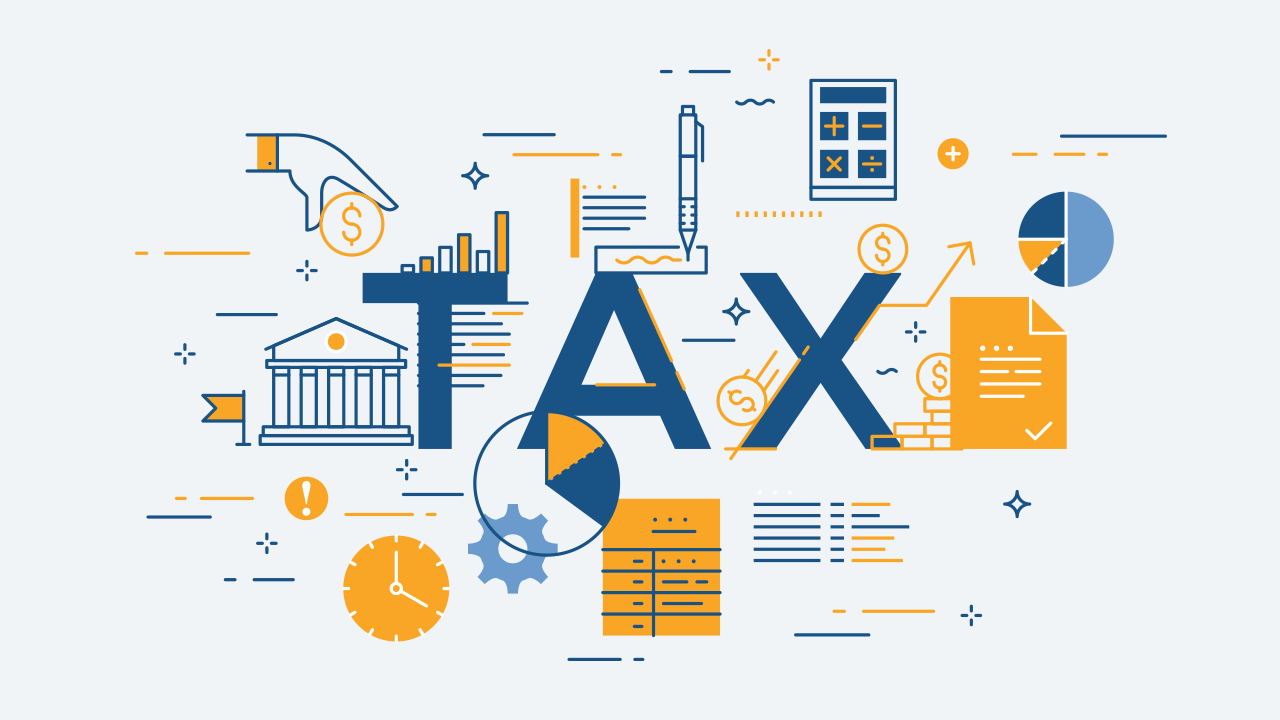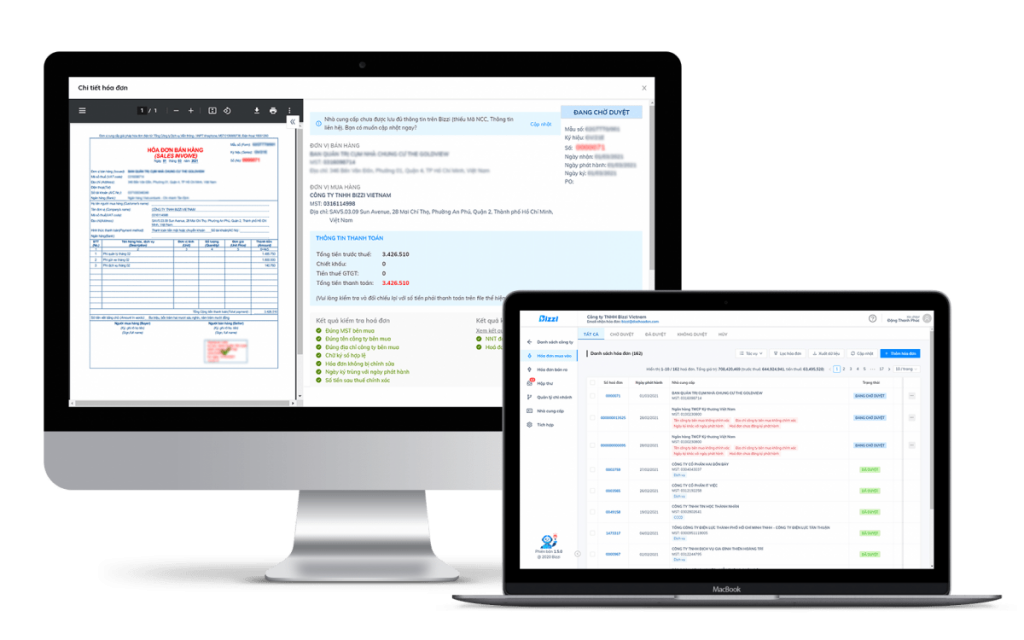The Politburo issued Resolution 68-NQ/TW on private economic development, emphasizing an important turning point: eliminating lump-sum tax for business households by 2026 at the latest. This affirms the determination to switch from lump-sum tax to declaration and transparency of actual revenue and expenses, creating more fairness in tax obligations and promoting sustainable development of business households.
The forced abolition of lump-sum tax from 2026 is not only a challenge but also opens up great opportunities for business households if viewed from a long-term perspective. So what should be prepared when business households are forced to abolish lump-sum tax from 2026? The following article by Bizzi will provide solutions for businesses to have more information for reference.
Overview of new policies in Resolution 68
On May 17, 2025, the National Assembly issued Resolution 198/2025/QH15, officially stipulating that from January 1, 2026, business households and business individuals will no longer apply the lump-sum tax method, but must pay taxes according to the provisions of the law on tax administration. (The application time is shortened compared to the previous draft, which was July 1, 2026). Previously, on May 4, 2025, the Central Executive Committee issued Resolution 68-NQ/TW, for the first time giving an important direction: to eliminate lump-sum tax for business households by 2026 at the latest.

Resolution 68 of the Politburo focuses on developing the private economy with new policies such as reducing time and costs of administrative procedures, exempting/reducing taxes for small businesses, facilitating access to capital and land, promoting digital transformation and innovation, while strongly reforming inspection and examination activities in the direction of "post-audit" and encouraging business ethics for sustainable development.
- Reducing business conditions and administrative procedures:
- Time and cost reduction: Requires a minimum reduction of 30% in time and cost for administrative procedures and business conditions.
- Simplify and digitize: Promote digitization and simplify accounting, tax, and insurance regulations to make it easier for small, micro, and household businesses to comply.
- Support for small and medium enterprises and business households:
-
- Financial support: Exemption from corporate income tax for the first 3 years of establishment, abolishment of business license fees.
- Support access to capital: Expand green credit channels, build and improve credit guarantee funds, add functions to investment funds to increase capital supply for businesses.
- Converting business households: Create favorable conditions for business households to convert into enterprises and abolish lump-sum tax by 2026 at the latest.
- Digital support: Provide free digital platforms, accounting software, legal consulting services, and management skills training.
- Innovation in management and inspection mechanisms:
-
- Shift from “pre-audit” to “post-audit”: Change perspective, consider businesses as partners, reduce pre-audit procedures.
- Effective inspection and examination: Conduct inspection and examination at most once a year, prioritize online inspection and exempt physical inspection for businesses with good compliance.
- Applying technology in management: Building a data and AI system to warn of early risks of violations, using technology to inspect and check remotely based on electronic data.
- Promoting innovation and green business:
-
- Testing new technologies: Issue a controlled testing legal framework (sandbox) for new technologies such as AI, blockchain.
- Tax incentives for R&D: 200% research and development (R&D) expenses are deductible when calculating corporate income tax.
- Financial support for digital and green transformation: Provide funding from science and technology funds, or corporate income tax deductions for businesses investing in technology.
- Enhancing business capacity and connecting value chains:
-
- Resource support: Unlocking land, capital, and human resources, promoting training linked to practice.
- Developing supply chains: Encourage large enterprises to lead supply chains, connect with small and medium enterprises to transfer technology and provide training.
- Strengthening business ethics: Emphasize the importance of business ethics and social responsibility in sustainable development.
The challenge for businesses in this context is: What to prepare when business households are required to abolish lump-sum tax from 2026?
Why should business households convert into enterprises?
Business households should convert to enterprise models to have legal status, increase access to capital and reputation in the market, hire more workers and expand business scale more easily, and enjoy preferential tax and fee policies and legal support from the State.
- Reason for conversion:
-
- Suitable for development scale: If the business grows beyond the scale of a household business, converting to an enterprise is a necessary step to continue sustainable development.
- Optimize management and operations: The business model provides a more professional management system, helping to optimize business operations and increase financial efficiency.
- Adapting to market trends: In the context of economic integration, transformation is an inevitable trend for business households to improve their competitiveness and contribute more to the country's economic development.
- Key benefits of conversion:
- Having legal status: Enterprises have independent legal status, helping business activities have solid legal status, creating trust for partners and banks, thereby making it easier to borrow capital.
- Enhance credibility and access to capital: The legal status and transparent accounting system of the enterprise help increase credibility, creating favorable conditions for raising capital from banks and other financial institutions.
- Business expansion:
-
- Converting to a business model allows hiring more workers (if a business household has 10 or more workers, it is forced to convert), expanding the business area, opening branches and participating in larger projects.
- Enjoy tax and fee benefits: When converting to an enterprise, a business household is exempted from initial business registration fees, appraisal fees, conditional business license fees, and business license fees for the first 3 years.
- Enhance cooperation and association capabilities: Enterprises have more advantages in cooperation, joint ventures, associations with other economic organizations, and participation in large-scale economic activities.
- Support policies from the State: The State has preferential policies, support in administrative procedures, training, and providing free accounting software to encourage business households to convert into enterprises.

It is mandatory to use electronic invoices, how should businesses prepare?
To prepare for mandatory use of electronic invoices, businesses need to prepare infrastructure (computers, internet), choose an electronic invoice solution provider and register to use electronic invoices according to Form No. 01/DKTĐ-HĐĐT with the tax authority. Businesses need to ensure that they have sufficient legal documents (business registration, tax code) and possess a valid digital signature.
- Prepare infrastructure and documents:
-
- Device: Prepare a computer or other device with a stable internet connection.
- Legal documents: Have business registration certificate, business establishment decision and tax code.
- Digital signature: Purchase and register a digital signature that is valid according to the provisions of law.
- Select and register an electronic invoice provider:
-
- Choosing a supplier: Businesses need to choose a reputable e-invoice solution provider for software and technical support.
- Register to use electronic invoices: Submit form No. 01/DKTĐ-HĐĐT (attached to Appendix IA of Decree 123/2020/ND-CP and Circular 78/2021/TT-BTC) to the tax authority to register to use electronic invoices.
- Deploying the use of electronic invoices:
-
- System integration: Integrate electronic invoice software into the business's internal processes.
- Staff training: Ensure staff understand and can proficiently use the e-invoicing software.
- Issue and send invoices: Once approved, businesses can start issuing electronic invoices and sending them to customers.
- Important Note:
-
- No more issuance notice: According to current regulations, businesses do not need to prepare and send invoice issuance notices as before.
- Benefits of early implementation: Early implementation helps businesses take advantage of competitive advantages, avoid congestion when many businesses implement at the same time, and have time to get used to and adapt to the new system.

What are the challenges to prepare when business households are required to abolish lump-sum tax from 2026?
From 2026, along with the abolition of lump-sum tax, electronic invoices (E-invoices) will become mandatory for all business households and enterprises. This is an important step to make business activities transparent, but at the same time it also poses many challenges. So what should businesses prepare when business households are required to abolish lump-sum tax from 2026?
- Digital infrastructure system: Ensure stable computer, accounting software, and transmission line to issue and store electronic invoices.
- Transparent internal processes: The habit of "selling without invoices" will no longer be suitable, businesses must attach electronic invoices to every transaction.
- Accounting staff training: Equip yourself with knowledge about new regulations, how to handle - look up electronic invoices and submit reports promptly.
Centralized data management: Avoid errors, loss or being discovered by tax authorities after audit.
Bizzi – A powerful assistant for digital age accounting
In the context of post-audit replacing pre-audit, Bizzi helps businesses:
- Automate processing Electronic invoice
- Receive - check - store invoices quickly and accurately.
- Reduce the risk of errors when entering data manually.
- Effective cost & debt management
- Real-time cost control system.
- Tracking and reminding of debts helps businesses avoid cash flow interruptions.
- Flexible integration with accounting/ERP software
- Invoice data is synchronized, helping accountants easily prepare tax reports and financial reports.
- Smart post-check
- Early warning of unusual invoices or risky transactions.
- Help businesses proactively fix problems before tax authorities handle them.

Electronic invoices are “tickets to a new playground” – mandatory, transparent and fairer. With Bizzi’s support, businesses not only meet legal regulations but also turn tax obligations into financial management advantages.
Conclude
Hopefully, through the above article, businesses have the answer to the question: What to prepare when business households are required to abolish lump-sum tax from 2026?
Although in the short term, this change may cause many households to worry about having to get used to new processes and higher management costs. However, in the long term and knowing how to take advantage of the features of smart accounting software, this is definitely an opportunity for businesses to escape the "small retail label", build a reputable brand, expand their business and access more official resources.
Sign up today to try out the features of accounting software and electronic invoices for converting businesses – Bizzi: https://bizzi.vn/dat-lich-demo/


